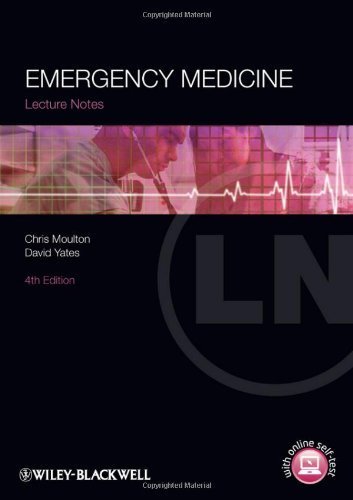
Ebook Info
- Published:
- Number of pages:
- Format: PDF
- File Size: 19.79 MB
- Authors: Moulton
Description
Highly affordable, pocket-sized guide to Surface Anatomy for junior doctors and medical trainees.
Reviews
A concise and well-organised book which focusses in turn on precisely those areas which are likely to prove most problematic for individuals and their families. The emphasis is placed firmly on recovery and I liked the metaphors for susceptibility (the stress/vulnerability bucket, for example). On the downside it seems to me that this book avoids more complicated and enduring cases. The chapter on delusions seems to focus mainly on paranoia and would benefit, I think, from including more detail about other, perhaps more extreme experiences and distressing delusions. The book also seems to me to talk up the role of meds. To my mind the example of one individual gaining 3 stones whilst on Olanzapine then, after some work on her diet and over a period of 3 months, managing to lose a mere 4 pounds is not an optimistic or encouraging read. And, although Clozapine is mentioned for those who see little or no effect from other meds, there is no consideration given to those who, having failed to benefit, decide that medication is not for them. Someone who has already gained a lot of weight on Olanzapine and failed to benefit from another atypical anti-psychotic might not want to hear about another drug which comes with weight gain as a side effect. Overall impression – a good book for motivated individuals and their families, especially those with good insight and faith in the medical model. Well written and very clearly laid out. In my opinion, though, more challenging difficulties, especially in cases with poor insight, aren’t given sufficient depth or coverage. There is also very little detail on how to cope with or address the so-called negative symptoms. I am left to wonder whether any of the authors have actually lived with anyone with psychosis and fully understand the toll that these symptoms can take on a family. This book represents an excellent start but to my mind would benefit from much more detail and a more serious attempt to address the day-to day problems that are often experienced – low motivation, poor personal care, disrupted sleep patterns etc. Basic CBT & sleep hygiene represent the sort of approach I’d expect from a low intensity IAPT therapist, NOT professionals advising on serious mental illness. Although this book does set out with a cognitive approach, it’d have to be much more sophisticated to convince me that this really could work in all but the most straightforward cases.
Free Download
![[PDF] Lecture Notes Neurology, 9th Edition (2010) by Lionel Ginsberg](https://unitedvrg.com/wp-content/uploads/2024/06/411u89TdWlL-218x150.jpg)
![[PDF] Lecture Notes Clinical Biochemistry, 9th Edition (2013) by Simon W. Walker](https://unitedvrg.com/wp-content/uploads/2024/06/41sknMqKPaL-218x150.jpg)
![[PDF] Lecture Notes Orthopaedics and Fractures, 4th Edition (2010) by T. Duckworth](https://unitedvrg.com/wp-content/uploads/2024/06/415529CEumL-218x150.jpg)
![[PDF] Lecture Notes Obstetrics and Gynaecology 2nd Edition (2005) by Diana Hamilton-Fairley](https://unitedvrg.com/wp-content/uploads/2024/06/41S10SFJN3L-218x150.jpg)
![[PDF] Lecture Notes Haematology 10th Edition (2018) by Christian S. R. Hatton](https://unitedvrg.com/wp-content/uploads/2024/06/41latz3HpdL-218x150.jpg)
![[PDF] Lecture Notes on Clinical Skills 4th Edition (2003) by Roger Blackwood](https://unitedvrg.com/wp-content/uploads/2024/06/41LvhZMbdtL-218x150.jpg)